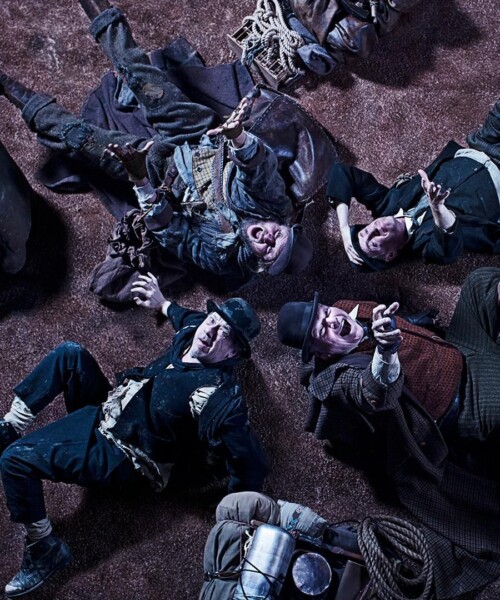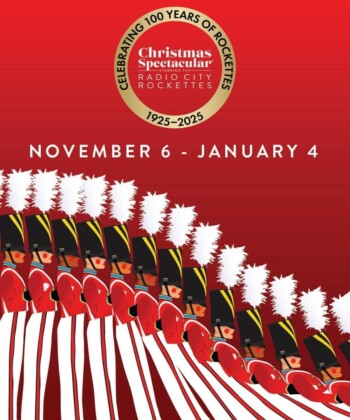Brian Dennehy might be best known for his work on TV and film, but the actor’s no stranger to the stage. Indeed Dennehy’s done plenty of time on Broadway as well as walking the planks in Chicago and other theater towns. This summer, the actor’s putting his theatrical side on display by doing not one but two shows at the renowned Stratford Festival, playing the Earl of Shrewsbury in Mary Stewart and Pozzo in Waiting for Godot (pictured).
We caught up with the Tony winner to talk about life on stage, keeping characters straight and his surprising next project.
How did you find yourself involved in the Stratford Festival?
Well, I was in a play on Broadway a few years ago, Inherit the Wind, with Chris Plummer, who I think did his first show here in the 1950s. In fact, as I love to remind him, one of my first big trips in high school was to Stratford to see Chris Plummer onstage—and I was 16 years old. Now, of course, he was only probably 22 or 23 himself, but I always like to tell him, “I saw you onstage when I was in high school.” That was when I first came here.
One of the things about being an American actor is you spend a lot of time working in Toronto. And being a theater nut, I’ve been over to Stratford several times to see what was on. When we were doing Inherit the Wind, the boss at the time came to talk to Chris about doing something and then he came over and started talking to me! One thing led to another and I came up, I think it was five years ago, the first time, and did two one-act plays that’s how it all started. This is my third season back.
Do you always do two shows at the same time?
You do if they can twist your arm. I mean, Plummer doesn’t do two shows, I can tell you that. But I ain’t Plummer. Still, I don’t mind doing two of the biggest hits here.
Is it tough to keep the parts straight, to not do your Mary Stuart lines during Godot?
The Mary Stuart is not so bad. I have one of those characters who comes out and makes big significant speeches but spends a lot of time in his dressing room at the same time. Waiting for Godot is a much more difficult, much more demanding proposition, but this is a really good production of the Beckett play, which I am really glad to be a part of. Hey, I’m 75 years old and I shouldn’t even be doing it anymore at all, but if I’m going to do it, I’m want to try to do it as high-level as I can.
Does a Stratford audience differ greatly from a New York or Chicago audience?
I don’t think so. I would say there’s hardly any difference. It’s interesting, because even the audiences are the same. In Chicago theatres and in New York theaters you have more serious theatre—which mostly is what I do—and comedies, but most of the time they want me in essentially dramatic stuff. And those plays in those cities usually attract the same people to the theater. If you want to see Waiting For Godot and you’re desperate to see it, you’re probably already a certain kind of theatregoer. And that would be true in Chicago, true in New York, and it’s true up here. Although here you have the added element of it being a destination for the theatre. So the audiences here are pretty hip, and pretty responsive.
Is stage work different for you than TV or movie work?
If I were somebody getting really interesting movie roles, I probably would feel strongly about that as this, but I don’t get those parts. The stuff that I get offered, you do for the money and you do it because you have time to do it and maybe it’ll get you something else. And also, quite frankly, you do it to keep your goddamn medical benefits. At my age, that’s a very big consideration.
Movies are fun to do and television shows are fun to do. And I’ve had more than my share of success at them. It’s a painless way of doing this stuff. Although at 75, I notice that hardly any of it is painless anymore. People often think of me in terms of movies and television, but I started out as a theatre actor and I never stopped! I always work in theatre. It’s not as easy as it used to be, theater now. As you get older, the preparation takes a lot more time, the nerves seem to be a little janglier. But at the same time, I find it as rewarding as it used to be, when it works. I can’t imagine retiring, but I suppose one day I’ll have to.
So if you’re up at Stratford from spring through fall, do you get to enjoy yourself outside of work at all?
We’re going to be here doing these plays until October 15th, having started March 3rd. The thing is, you have a long rehearsal period. Interestingly enough, it probably doesn’t work out to be any more rehearsal time than you would have if you were doing one play, say, in six weeks. As you are rehearsing, not only are you rehearsing two plays, but the actors in your play may be rehearsing completely different plays. In fact, they usually are. So it gets very complicated, the scheduling up here. I don’t know what they did before computers, but it’s very complicated. It’s been my experience with actors that whatever time they have, they will use and usually still not be ready when the balloon goes up.
You haven’t got any fun traditions while you’re up there?
Well, I’m usually preparing for the next job. I’ve got a really tough job to do in Los Angeles—when I finish this I start immediately. It’s a very difficult play called The Steward of Christendom by a wonderful Irish writer named Sebastian Barry, who seems to me lesser known in the States than he should be. So, we’re going to do this play, this very difficult, beautiful, lyrical, heartbreaking playI figure I can learn at least the big speeches before I get out to L.A., and then stumble through the rest of them as I’m getting ready to go out.








































